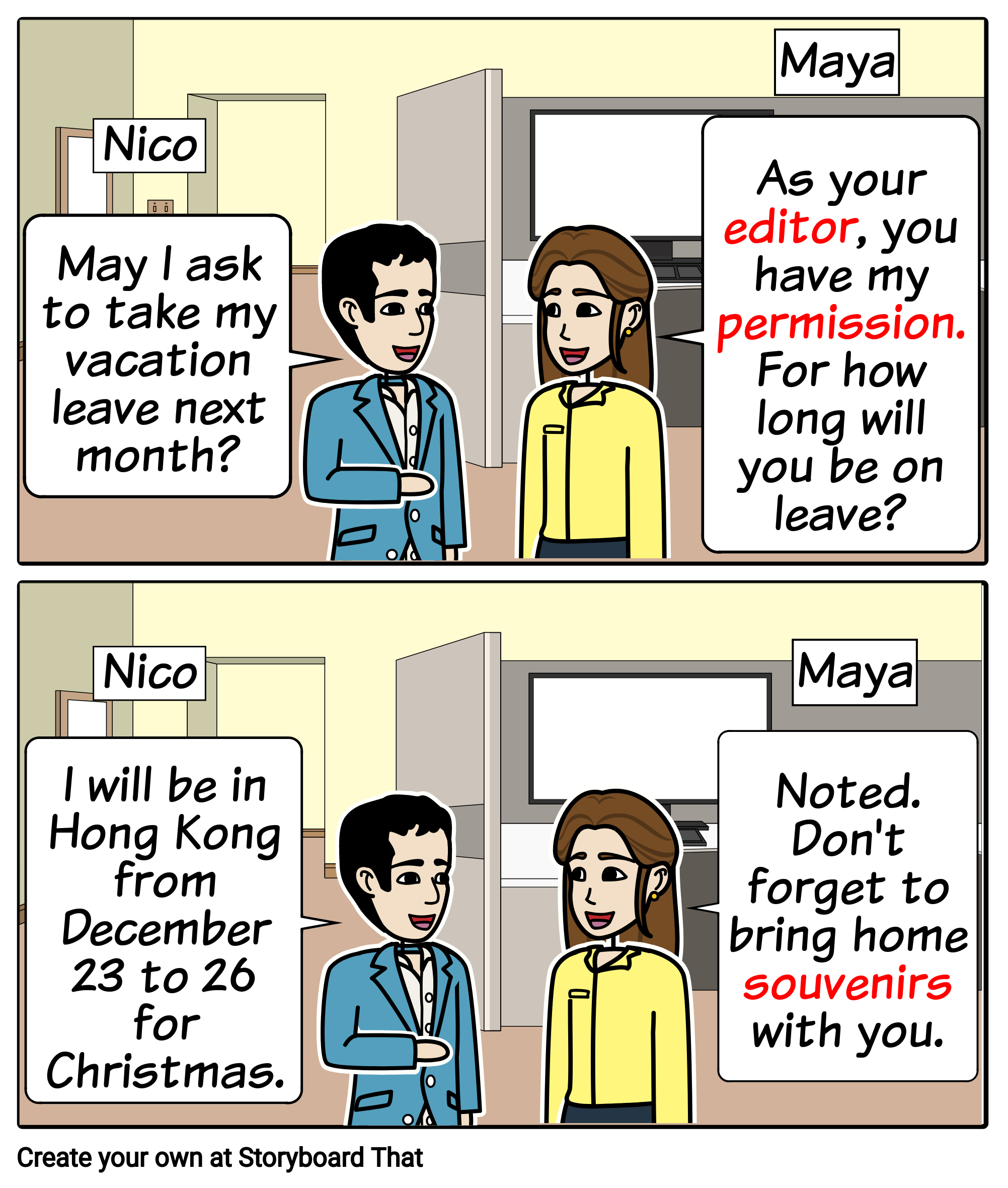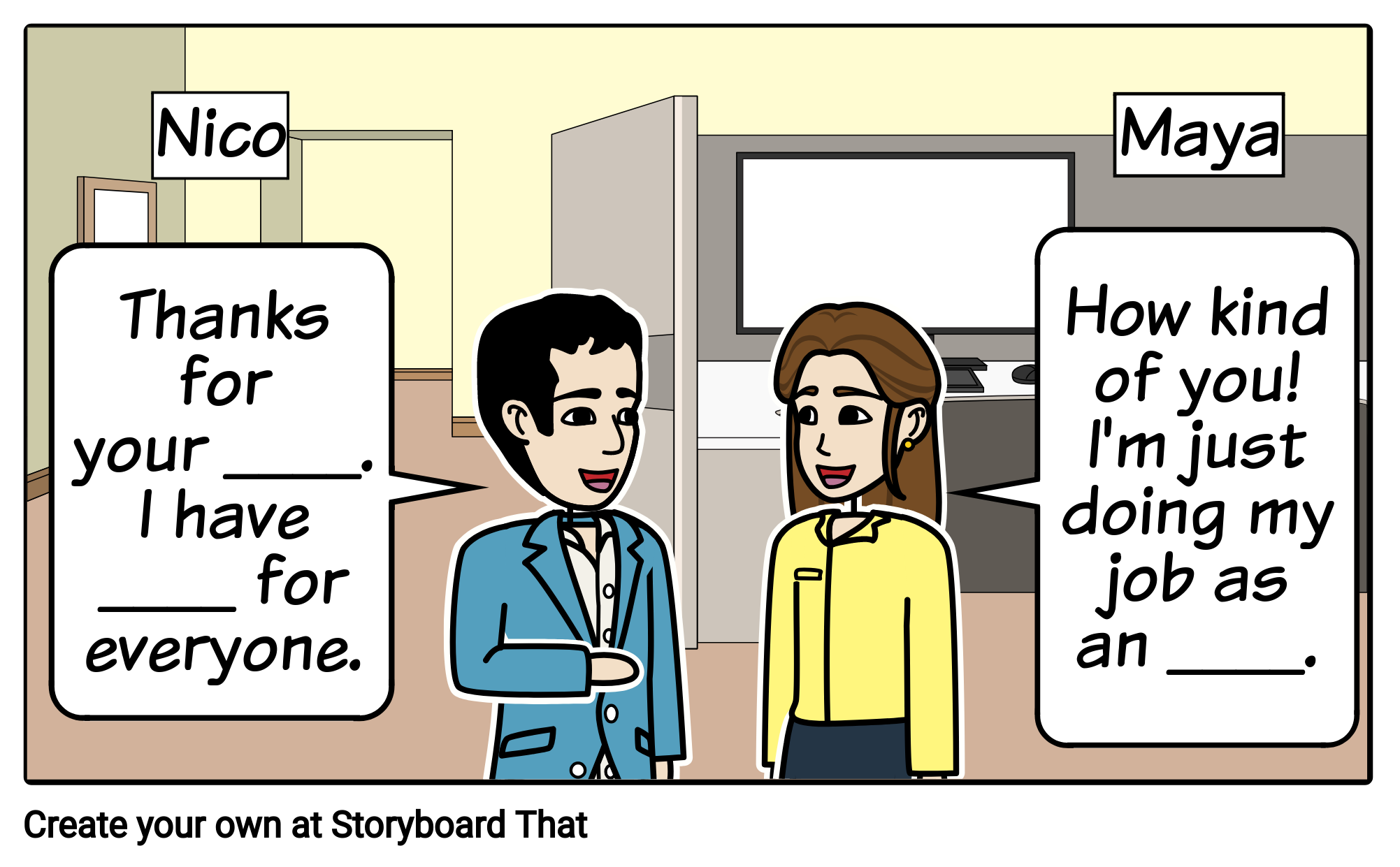LESSON GOAL
In this material, you will learn new expressions to use when asking for a leave. You will also learn new vocabulary.
この教材では、休暇を申請するときに使う表現と単語を学びます。
PART A_1
Please answer the questions in complete sentences.
PART A_2
| 1. | Have you ever taken a vacation/sick leave from your work/school? |
| Answer: | |
| 2. | For how long are vacation and sick leaves allowed in your work/school? |
| Answer: | 3. | When was the last time you took a vacation/sick leave? |
| Answer: |
PART B_1
Let’s read the dialogue. I will be Nico and you will be Maya. After reading it once, we’ll switch roles.
PART B_2

PART C_1
Let’s read each word and their meaning aloud. Please repeat after me.
PART C_2
| 1. | editor |
| [noun] a person in charge of correcting words for a newspaper or magazine | |
| 2. |
permission |
| [noun] the act of allowing someone to do something | |
| 3. | souvenirs |
| [noun] something you buy and keep from a place you visited |
PART D_1
Choose the correct answer based on the dialogue you read.
PART D_2
| 1. | When is Nico going to take a vacation leave? |
| a. | next month from December 23 to 26 |
| b. | next week November 23 to 26 |
| c. | tomorrow from October 23 to 26 |
| 2. | What will Nico bring home from Hong Kong? |
| a. | backpacks |
| b. | a new car |
| c. | souvenirs |
| 3. | How many days will Nico be on vacation leave? |
| a. | 5 days |
| b. | 4 days |
| c. | 2 days |
PART E_1
Read the dialogue and fill in the blanks with the correct vocabulary words.
PART E_2

REVIEW AND FEEDBACK
Now, let us review the things that you learned in this lesson.
ではこのレッスンで学んだことを振り返りましょう。
(Please give a short feedback on how your student did on your class.)
| Grammar 文法 |
Pronunciation 発音 | Vocabulary 単語 |
Comprehension 理解 |
|
|---|---|---|---|---|
 GOOD GOOD |
文法の誤りはほとんどなく、完全な文章で話すことができる | ほとんどの単語をはっきりと正しく発音することができる | 習った表現を適切に使うことができる | 文章を理解し、質問に正しく答えることができる |
 FAIR |
文法の誤りはあるが、完全な文章で話すことができる | 発音の練習が必要な言葉がいくつかある | たまにミスはあるが、習った表現を適切に使うことができる | 文章を完全に理解するのは難しく、質問に正しく答えられないときもある |
 POOR |
文章で話すのは難しく、単語だけで話すことができる | 発音の練習が必要である | 習った単語と表現を少しだけ使うことができる | 文章を理解するのは難しく、質問に答えるのは難しい |
レッスン教材に関するアンケートのお願い
レッスン教材の改善・拡充を図ることを目的とし、アンケートを実施しております。
以下のURLからアンケートにお答えいただき、 ご意見・ご要望をお聞かせください。
アンケートはこちら